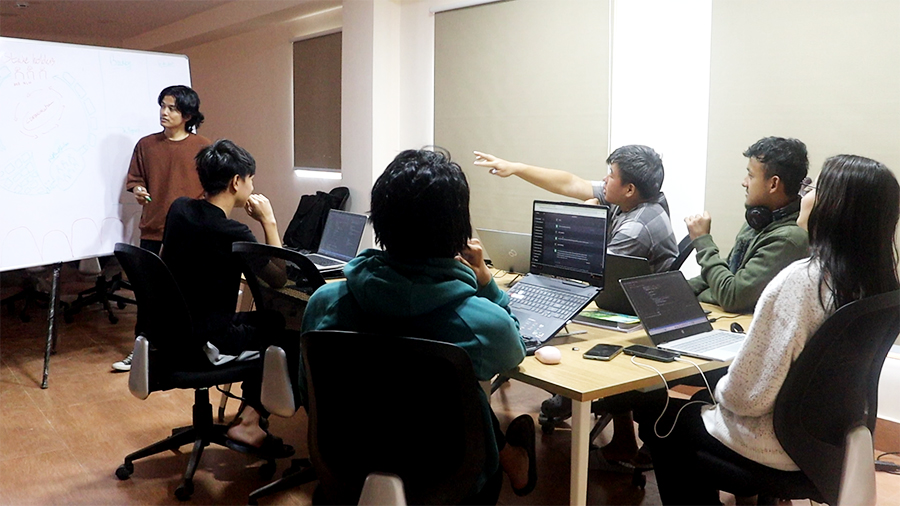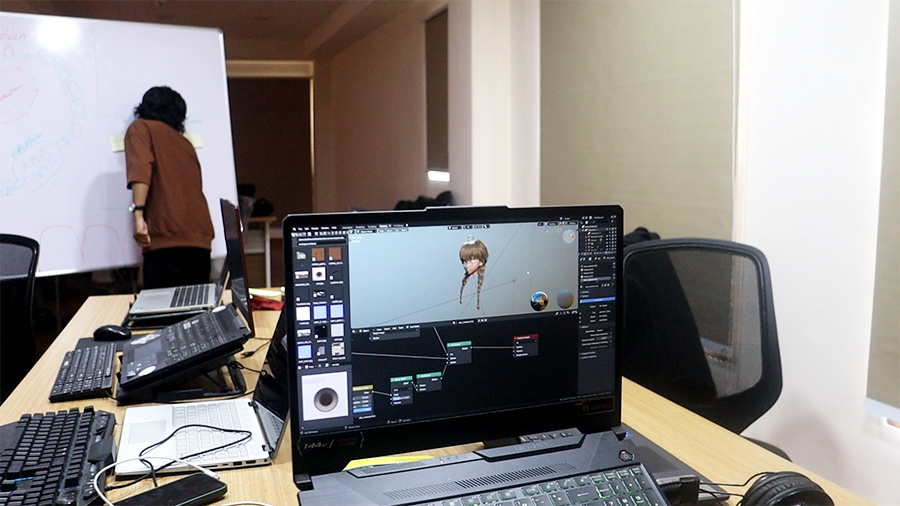
Artificial intelligence or AI technology is developing at high speed, transforming many aspects of modern life. To make AI accessible and valuable to everyone, regardless of their technical expertise, a group of young students from Gyalpozhing College of Information and Technology has been working to create user-friendly chatbots for institutions. It is to cater hassle-free customer services. Chatbot is a computer programme designed to simulate conversation with human users, especially over the internet.

Initially started as a college project, a team of seven students formed the NoMind Bhutan, an AI research and development company. The students then started working on creating chatbots. All the students are studying in the second year.
They used open sources to create the chatbots and then submitted proposals to a few institutions.
“Our chatbot is built on top of GPT 3.5 model and then we use a few other open sources like Falcon 7B and Mistral 7B. Our chatbot will be training on only the data that is provided by our customers, so it will be a custom data trained and then it will be only speaking related to your business and it basically becomes a Chat GPT for your websites,” said Ugyen Dendup, Co-founder and CEO of NoMind Bhutan.
Today, the Bhutan National Bank, the Bhutan NDI and the National Land Commission are using the chatbot services. The institutions pay the team a minimal fee every month or annually.
The chatbots are located at the end of the front page of their websites. When an individual asks any queries, the chatbot instantly replies as it is linked with the website data of the companies. However, when there is an error or issue with the chatbot, the students solve it themselves.
Every day, the institutions have been receiving more than 15 queries through chatbots.
To further enhance the chatbot services, the students are adding new features to them.
“Some of the new features we are trying to bring to our AI chatbots are a new dashboard, a much more robust dashboard for our chatbot system so that our clients can interact with our chatbot and see what kind of chat and text are sent by their customers,” said Jamphel Namdag Dorji, AI Lead of NoMind Bhutan.
“As a college that focuses on nurturing the next generation of tech leaders, it’s very important for us to ensure that the curriculum which is being taught is much relevant to the needs and requirements of the industry. Therefore, we provide modules such as data analytics and visualisation AI and machine learning, advanced deep learning, natural language processing, big data and all of which help the students to prepare for the unseen future in AI,” said Pema Wangmo, Assistant Lecturer at GCIT.
At the same time, the students said people lack trust in them as such a project is relatively new.
“One of the main challenges we are facing as a company is market penetration. So there is a general lack of trust since we are a new startup company. So, people generally have a tough time believing in our product. However, as we have managed to get more clients, we have slowly been able to build trust in the market,” said Jamphel Namdag Dorji.
Institutions that are using NoMind’s chatbots said the bots are helping facilitate customer services. Officials from the Bhutan NDI said, earlier people used to call or text them through social media Frequently Asked Questions such as how to register on the app and other queries related with documentation and eligibility. However, such kind of questions are easily answered through the chatbot now.
“We were approached by NoMind Bhutan. They came up with proposals and we thought that it might be a really good idea. Because sorting the FAQs on the website can be challenging and most of the time, people want quick responses. And based on the proposals, we thought we would try it out and see how it works out and make business decisions. And within a month of the testing period with the chatbot, we really like the customer support and even the output. So, we implemented the chatbot,” said Pallavi Sharma, Lead of Marketing and Communications at the Bhutan NDI.
With such innovations and ideas, the young minds behind NoMind Bhutan are beginning to revolutionise the way institutions interact with their customers, paving the way for the future of AI technology in Bhutan.
As their journey continues, they plan to make artificial intelligence more accessible and beneficial for all.
Intern (Sonam Pelkid)
Edited by Tsheirng Zam








